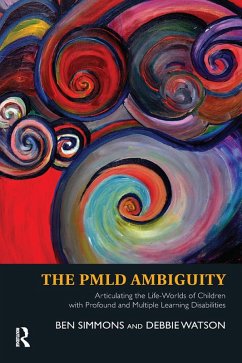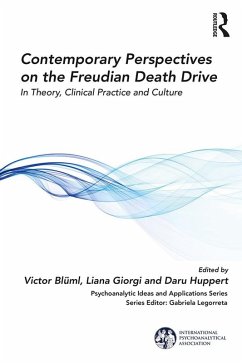
What To Do If the Mind Does Not Develop (eBook, PDF)
A Psychoanalytic Study of Pervasive Developmental Disorders

PAYBACK Punkte
19 °P sammeln!
The result of three decades of psychoanalytic work with children and adolescents, this book takes a fresh and empathic look on the pervasive developmental disorders in childhood and adolescence, describing their many manifestations through the presentation of particularly representative clinical cases, in pages of high scientific rigour but also of simple and poetic language. What To Do if the Mind Does Not Develop speaks both to the specialist and researcher and to the reader who is simply interested in the topic, thanks also to a glossary of the more difficult technical terms. The text offer...
The result of three decades of psychoanalytic work with children and adolescents, this book takes a fresh and empathic look on the pervasive developmental disorders in childhood and adolescence, describing their many manifestations through the presentation of particularly representative clinical cases, in pages of high scientific rigour but also of simple and poetic language. What To Do if the Mind Does Not Develop speaks both to the specialist and researcher and to the reader who is simply interested in the topic, thanks also to a glossary of the more difficult technical terms. The text offers valuable psychoanalytic observations on the cognitive and emotional difficulties of these patients that may help physicians, teachers, and parents to develop a better and deeper understanding of their true psychology.
Dieser Download kann aus rechtlichen Gründen nur mit Rechnungsadresse in A, B, BG, CY, CZ, D, DK, EW, E, FIN, F, GR, HR, H, IRL, I, LT, L, LR, M, NL, PL, P, R, S, SLO, SK ausgeliefert werden.













